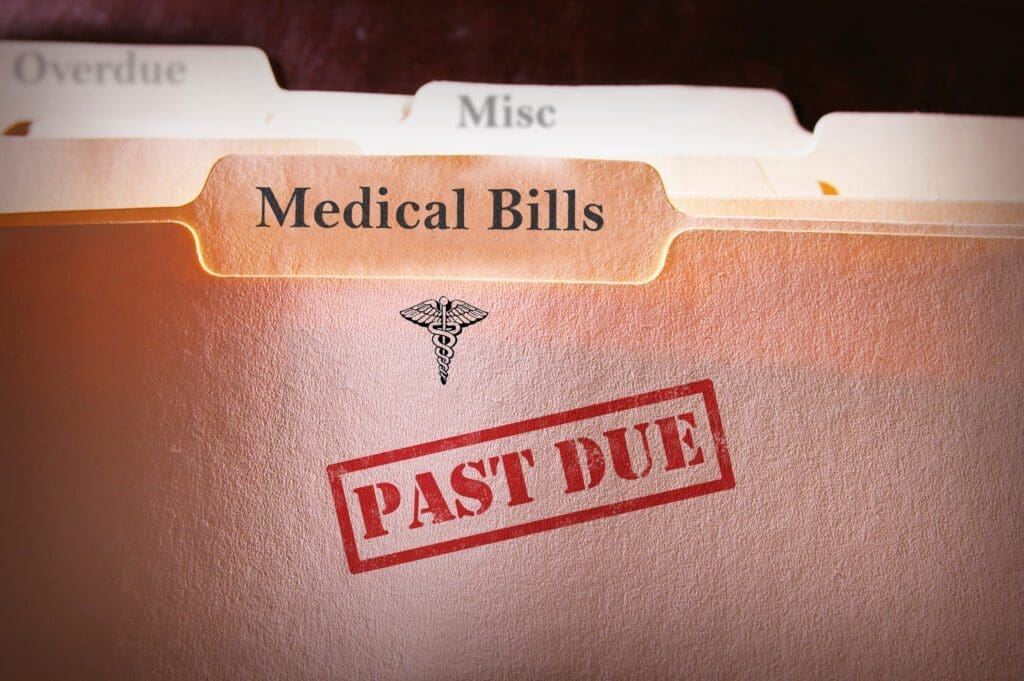Last week, the Consumer Financial Protection Bureau (CFPB) announced a new rule that will exclude all medical debt from credit reports. According to the CFPB, this change will erase nearly $50 billion in unpaid medical bills from roughly 15 million Americans’ credit reports and boost their credit scores by an average of 20 points.
Many are applauding this move as a way of providing much-needed help to those who are financially struggling, giving them increased access to mortgages and other types of loans. Opponents of this change, such as the American Bankers Association argue that it may have the opposite effect, leading lenders to tighten the amount of capital available to borrowers.
I know I sound like a broken record, but only because those in power continue to repeat the same old song and dance. While I do not doubt compassion is what motivates many supporters of this rule change, the negative ramifications of such actions are rarely considered until it’s too late.
A friend of mine, upon learning about this policy change, joked, “Well, I guess I don’t have to pay my medical bills anymore.” While his comment was tongue-in-cheek, it reflects a rather astute analysis: one of the primary deterrents to defaulting on debt is the potential harm it can do to one’s credit. If medical debt no longer impacts credit scores, it removes a critical incentive for repayment. Sure, failing to pay might still result in a court judgment and wage garnishment, but for many collectors, the cost of litigation often exceeds any judgement that might be received. By weakening the consequences of nonpayment, this policy will likely increase defaults that ultimately hurt both lenders and borrowers.
After these new rules were announced, Vice President Harris issued a statement, saying, “No one should be denied economic opportunity because they got sick or experienced a medical emergency.” While I understand the sentiment, I believe this view is quite naïve and misguided.
It seems fundamentally unfair to exclude one type of unpaid debt from credit reports while keeping others. Surely evictions for unpaid rent are just as damaging to the credit reports of struggling individuals as medical debt. What about student loan debt? Haven’t we been told for years about the crippling effect it has on one’s ability to get ahead in life?
I imagine many of you have little sympathy for money lenders, and to some extent, I share this animosity for those who use predatory loans to exploit the poor. However, the act of lending money with the expectation of repayment with interest is not inherently immoral. Without lending institutions, things like homeownership or business startups would be impossible for all but the independently wealthy.
A vital part of lenders being able to issue loans is the ability to accurately assess the risk posed by the borrower. After all, if you hold bonds in your retirement portfolio, don’t you want to ensure the ratings assigned to them are accurate? I guarantee that many of the same people applauding these new exclusions from credit reporting would be the first to cry foul if a AAA-rated bond fund collapsed because the corporations within it carried billions of unpaid debts that went unreported. How is this any different?
The road to ruin is often paved with good intentions. While I don’t want anyone to face financial hardship because of illness or medical emergencies, excluding medical debt from credit reports undermines the integrity of the lending system. Compassion must be paired with practicality. If we fail to consider the ripple effects of policies like this, we risk replacing one problem with one that is worse. As Newton famously said, for every action, there is an equal and opposite reaction—a principle that applies as much to economics as it does to physics. It’s not enough to act with kindness; we must also act with foresight.
(Past performance is no guarantee of future results. The advice is general in nature and not intended for specific situations)

